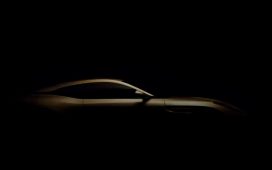David Bailey unpacks why the EU have imposed significant tariffs on Chinese electric vehicles and explores whether they will have the desired effect.
The European Union (EU) recently took a bold step by imposing tariffs of up to 35.3% on battery electric vehicles (BEVs) imported from China, on top of existing 10% tariffs. The move, framed as a countermeasure against what the EU perceives as unfair competition through heavy Chinese subsidies, will have big ramifications for global trade, environmental policy, and the rapidly developing BEV market.
The EU’s decision stems from concerns that Chinese BEV manufacturers have for years received significant state subsidies, allowing them to produce vehicles at something like a 30-40% cost advantage as compared with European automakers. Chinese industrial policy support is thought to have run to hundreds of billions over recent decades across batteries and BEVs, enabling Chinese firms to build experience, reduce costs, scale up and push ahead on battery innovation. China might ask Europe why it did not do something similar.
Most recently, Chinese firms have invested heavily in next-generation battery technology, including solid-state batteries and cobalt-free options, while European firms have struggled to scale up – witness the recent set back at NorthVolt.
European car makers have been left in the slow lane, in part also because of their own mistakes. For years they pushed diesels as a way of getting tailpipe greenhouse gas emissions down, wasting massive amounts of investment on a technological dead-end, until it came screeching to a halt with Volkswagen’s ‘dieselgate’ scandal and crisis. Years behind in the BEV revolution, EU car makers are now scrambling to catch up.
Chinese automakers like BYD, NIO, SAIC (makers of the MG brand) and Xpeng are competitive not only in terms of cost but also in technological innovation, especially in terms of batteries. Tesla also makes substantial numbers of Model 3 and Y cars in China for export.
This has put a big squeeze on European makers like Volkswagen, Renault, and Stellantis, which are frantically trying to reduce costs and increase production capacity for BEVs at a time when BEV demand seems to have stalled, resulting in a raft of profit warnings from Europe’s big players.
Unsurprisingly, a ‘flood’ of cheap Chinese-made EVs has of late hit Europe, taking 20% of the EU’s BEV market, leading to calls for a ‘level playing field’ from automakers like Stellantis. In response, just over a year ago, the European Commission initiated an anti-subsidy investigation into Chinese BEVs, which culminated in the imposition of tariffs.
The tariffs range from 7.8% for Tesla to 35.3% for SAIC, lasting for 5 years, and aim to raise the prices of Chinese BEV imports, buying time for EU auto makers to catch up. The tariffs aim to discourage European consumers from purchasing Chinese-made BEVs and encouraging them to consider European alternatives.
But will the tariffs have the impact that the EU hopes? Some Chinese automakers like BYD have such a huge cost advantage over European rivals that they may be able to simply absorb the tariffs, keep prices the same and still make a profit, albeit at reduced levels. They may also decide to export more hybrids and internal combustion engine (ICE) cars to the EU, which are not covered by the tariffs.
Put another way, the EU’s tariffs may simply not be enough to keep Chinese BEVs at bay. The US and Canada have just hit Chinese BEV imports with a 100% tariff for exactly this reason.
Leaving that aside, if prices of imported Chinese BEVs do go up in Europe, then tariffs will make BEVs less accessible to consumers, particularly in the lower to mid-range price brackets, thus slowing BEV adoption and the EU’s progress towards net zero. This policy dilemma is something the UK will have to wrestle with next.
While the tariffs could offer something of a breathing space for European automakers, their long-term prospects ultimately depend on their ability to leverage this period of protection to invest in innovation, scaling up and reducing costs. The tariffs are not a permanent solution; if European companies fail to close the gap with Chinese auto makers, then in 5 years we could be back to square one.
Europe also needs a better thought through industrial policy to help transform the industry. Tariffs alone will not be enough. The EU’s Green deal was a start but does not match the scale of investment in green industries seen in the US’ Inflation Reduction Act, Chips and Science Act and Infrastructure Act. This package is seen as a ‘gamechanger’ in attracting investment in green manufacturing to the US, and away from the EU.
From a Chinese perspective, the EU tariffs represent a significant barrier to entering one of the most lucrative BEV markets in the world. The EU has been a key target for Chinese companies looking to expand globally, particularly as China’s domestic market becomes increasingly saturated with EVs and, as noted, the US had slammed the door shut with 100% tariffs on Chinese BEVs.
The tariffs will exacerbate trade tensions between the EU and China. Beijing has already expressed its displeasure, and has hit back with prospective duties of 35% on brandy. Pork, dairy and other EU exports may well be next. And China may retaliate by imposing tariffs on premium cars, which Germany exports in large numbers to China. Unsurprisingly, Germany headed the opposition to EU tariffs on Chinese EVs, fearing retaliation on its premium car exports.
A tit-for-tat trade war would be detrimental to both sides, hitting trade and growth, and would disrupt supply chains and increase costs for manufacturers and consumers alike. It could also hinder the global fight against climate change by slowing down the adoption of BEVs.
More broadly, the EU’s tariff move has major geopolitical ramifications, as part of a wider effort by Western nations to decouple from China, especially in strategically tech and green sectors. With China itself is doubling down on industrial policy, we may witness a fragmentation of the global trading system.
By David Bailey, Professor of Business Economics, Birmingham Business School, and Senior Fellow, UK in a Changing Europe.







